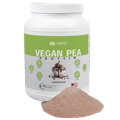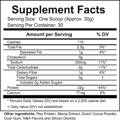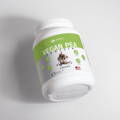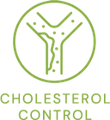Vegan Pea ProteiN (Chocolate)
Our Pure Vegan Pea Protein provides 22g of plant-based protein per serving to stimulate lean muscle growth and faster recovery.
Stimulates muscle protein synthesis at rates comparable to whey protein to support muscle growth.
Help restore diminished energy stores and rebuild muscles after training.
Zero-calorie natural sweetener that won't spike blood sugar levels.

Our Blend Of ingredients makes our Vegan Pea Protein Perfect!!

Power your plant-based fitness journey with our Pure Vegan Pea Protein from PumpUp Nutrition. This premium, eco-friendly protein powder contains 22g of clean, high-quality vegan protein from yellow peas per serving to stimulate muscle growth and accelerate recovery without any dairy or animal products.
Sourced from nutrient-dense peas grown in the Canadian plains, our pea protein powder provides a complete amino acid profile with all 9 essential amino acids needed to support lean muscle mass. The pea protein concentrate is naturally sweetened with zero-calorie stevia and features a rich chocolate flavor that mixes smoothly into plant-based milks, smoothies, oats and more. Our Pure Vegan Pea Protein gives you a delicious way to add muscle-building, satiating protein into your diet as a plant-based athlete, vegan, vegetarian or anyone seeking sustainable nutrition.
Lean muscle mass
Muscular strength and recovery
Supports weight control
Vegan, eco-friendly



Ingredients and Usage Information
Ingredients:
Pea Protein Concentrate, Stevia, Cocoa Powder, Guar Gum, Natural Flavors, Silicon Dioxide.
Flavor: Chocolate.
Manufacturer Country: USA
Product Amount: 2lb (907g)
Gross Weight: 2.2lb (1kg)
Suggested Use: Mix one to two scoops of protein with 6 oz of plant-based milk or water, depending on your preferences. Add some ice, fruit, oats, almond butter, chia seeds - whatever you like. Blend & Enjoy!
Allergen Warning: This product is manufactured in an FDA-approved facility that also processes milk, soy, wheat, peanuts, tree nuts, fish, and shellfish.
Warning: Keep out of reach of children. Do not use if the safety seal is damaged or missing. Store in a cool, dry place.
The Food and Drug Administration has not evaluated these statements. This product is not intended to diagnose, treat, cure, or prevent any disease.








Science Behind Our Plant-Based Protein
Pea Protein vs Whey Protein
Pea Protein and Blood Lipids
There is a heightened interest in plant-based diets for cardiovascular disease prevention. A systematic review and meta-analysis of randomized controlled trials took place to assess the effect of this substitution on established lipid targets for cardiovascular risk reduction. The results revealed that substituting plant protein for animal protein decreases the established lipid targets, low-density lipoprotein cholesterol, non-high-density lipoprotein cholesterol, and apolipoprotein B.
Pea Protein Properties
Pea protein includes four significant classes (globulin, albumin, prolamin, and glutelin), in which globulin and albumin are major storage proteins in pea seeds. It also has a well-balanced amino acid profile with a high lysine level.
Pea Protein and Blood Glucose
After a systematic review and meta-analysis of randomized controlled trials, the results indicate that replacing animal sources with plant protein leads to modest improvements in glycemic control in individuals with diabetes.
Pea Protein and Muscle Gains
Researchers conducted the impact of oral supplementation with vegetable pea protein on one hundred and sixty one males, aged 18 to 35 years who underwent 12 weeks of resistance training on upper limb muscles. All had to take 25 g of the proteins or placebo twice a day during the 12-week training period. The results stated that supplementation with pea protein promoted a more significant increase in muscle thickness, especially for people starting or returning to a muscular strengthening.
Pea Protein Health Benefits
Intake of plant protein was significantly associated with a lower risk of all-cause mortality. Dose-response analysis showed an additional 3% energy from plant proteins a day was associated with a 5% lower risk of death from all causes.
unheard benifits

Unheard Benefits





















